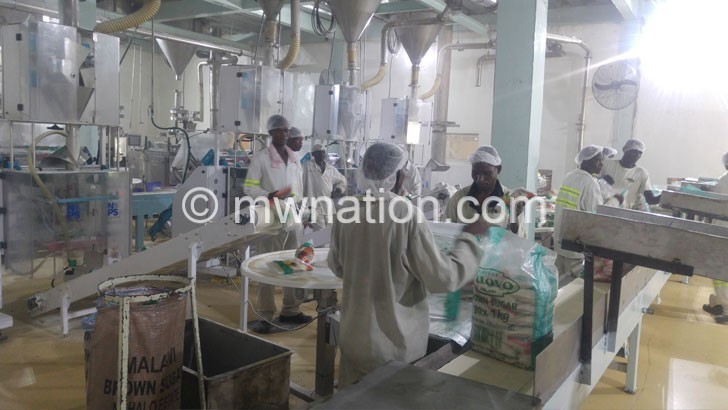Illovo boosts vitamin A fortification at Dwangwa
Illovo Sugar (Malawi) plc had installed two new vitamin A dosing plants at Dwangwa Sugar Factory in Nkhotakota to enhance the efficiency of sugar fortification.
The unit has the capacity of fortifying 30 tonnes of sugar per hour, replacing the old one with the capacity to fortify 20 tonnes per hour.
Illovo Sugar (Malawi) plc managing director Mark Bainbridge said in an interview on Saturday that the installation of the dosing plant is part of the company’s wider vitamin A premix localisation project.

He said since the Malawi Stock Exchange-listed firm started fortifying sugar in 2012, it has spent about K4 billion, demonstrating the level of commitment the company has on the programme.
Bainbridge said in 2017/18 financial year alone, Illovo fortified about110 000 tonnes of sugar with vitamin A, reaching an estimated two million people.
This has contributed to the country’s agenda of eliminating micronutrient deficiencies, especially in under-five children.
Said Bainbridge: “We fortify sugar with vitamin A as one way of contributing to government’s efforts of improving the health of the population.
“Over the past years, vitamin A deficiency was a public health concern but not anymore as findings of the 2015/16 Demographic and Health Survey indicate that vitamin A deficiency prevalence in Malawi has declined to four percent.”
He said as a further demonstration of the company’s commitment, Illovo Malawi introduced smaller packs of 220 grammes and 500 grammes to enable low-income families to access vitamin A fortified sugar.
Illovo Malawi, which is 76 percent owned by Illovo Sugar (Pty) Limited and 24 percent by the public, is a wholly–owned subsidiary of Associated British Foods of the United Kingdom.
The company, together with smallholder cane growers who supply approximately 19 percent of the total cane crop, have the capacity to produce two million tonnes of sugarcane, enabling the production of up to 230 000 tonnes of sugar annually.
In 2018/19 financial year, about 70 percent of the sugar produced was sold on the local market, with the balance earning valuable foreign exchange through export sales into regional African markets, the European Union and the United States of America.





